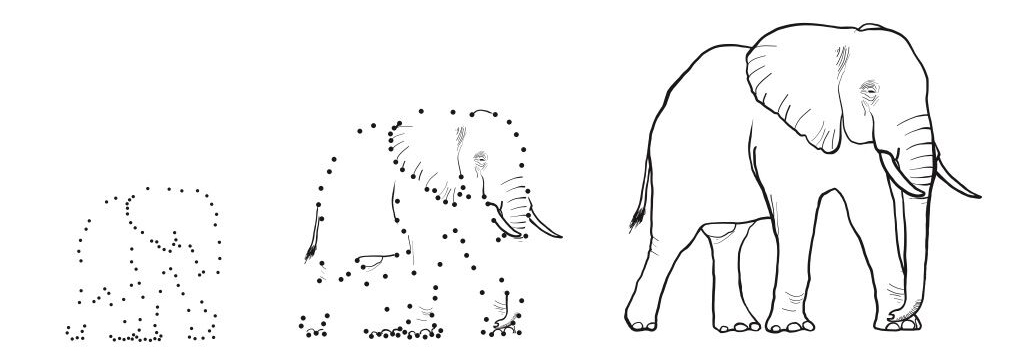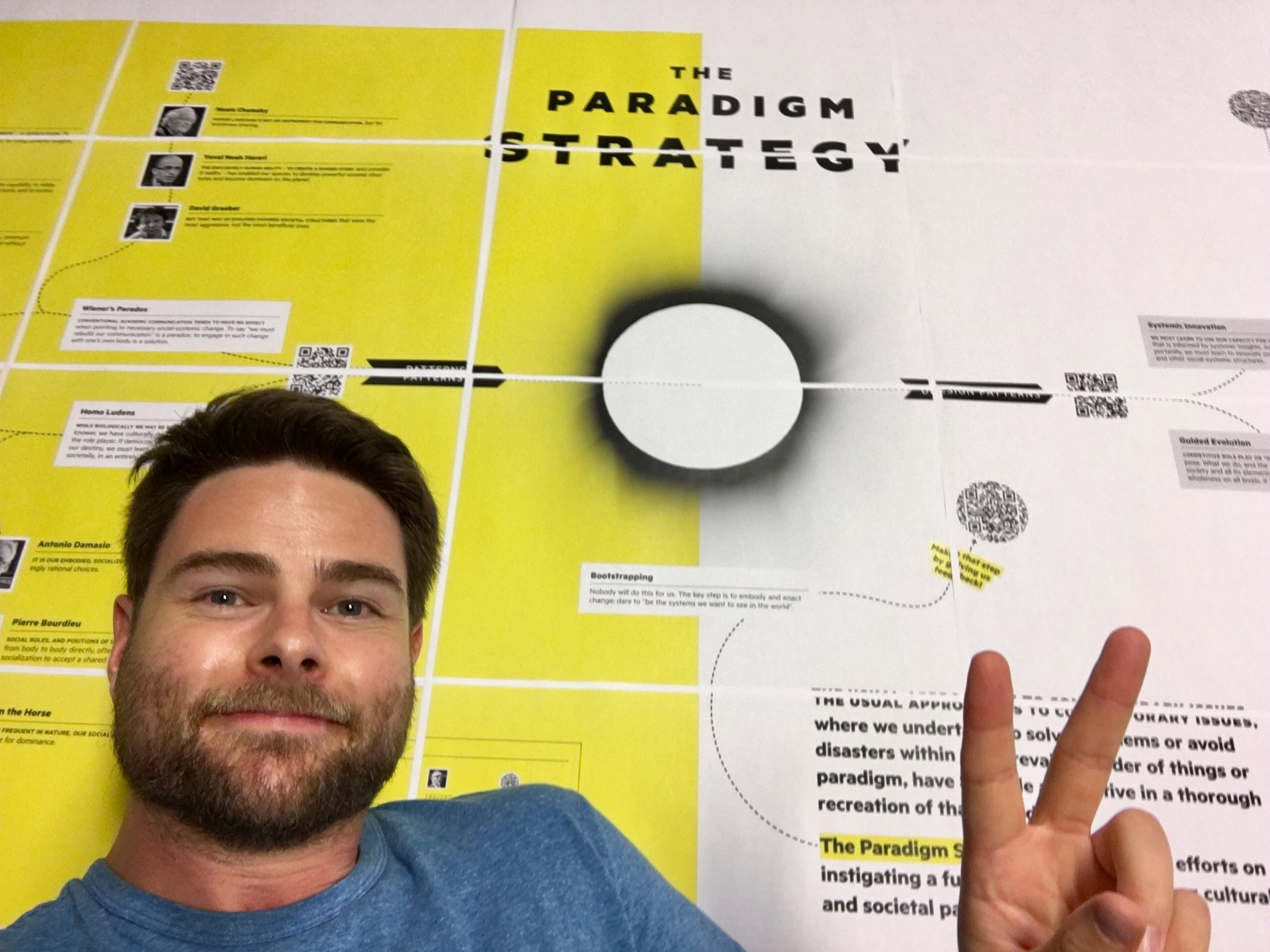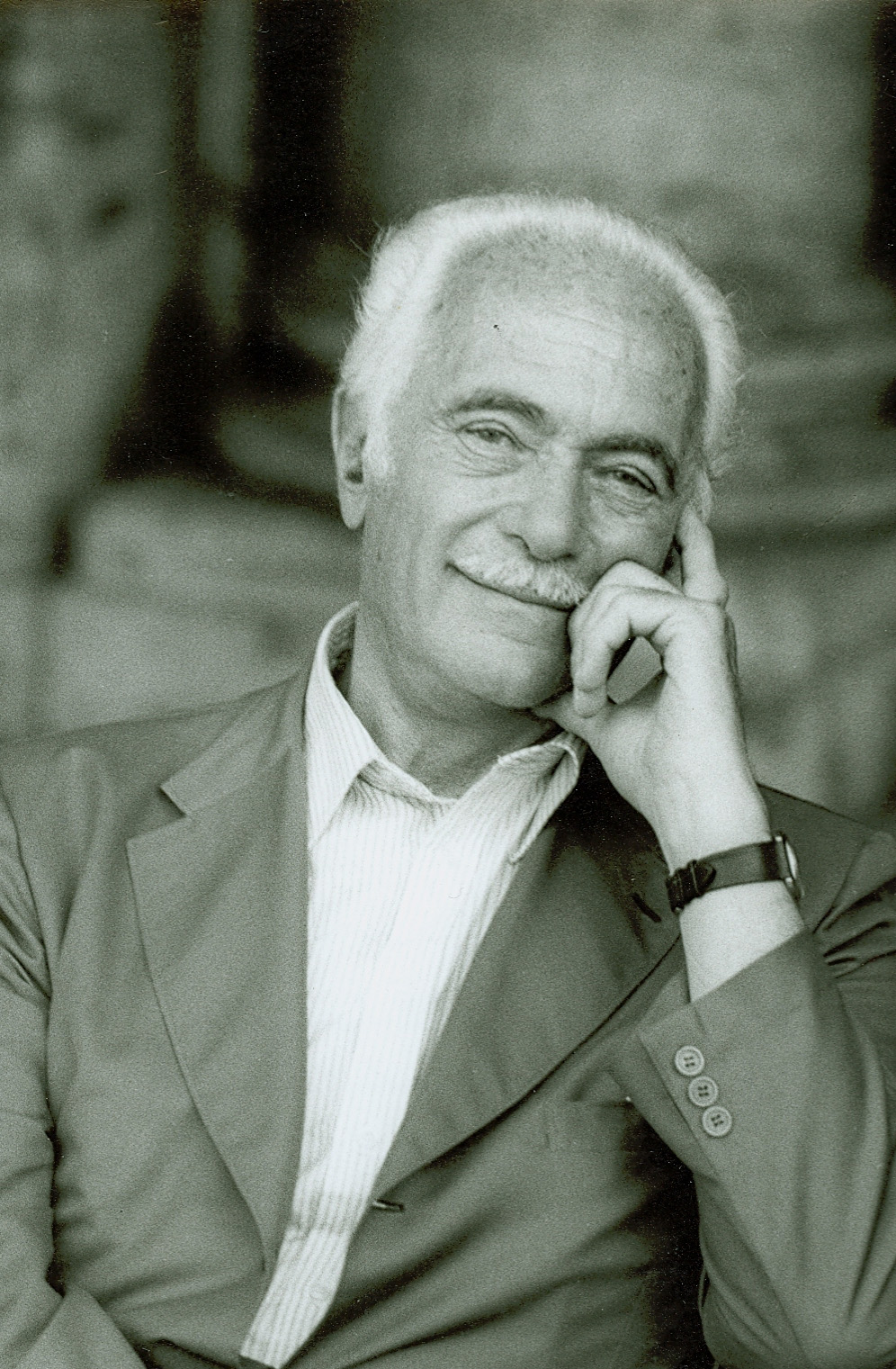CONVERSATIONS
Contents
Federation through Conversations

Changing our collective mind
Changing the subject
You might consider, just as we do, the news about Donald Trump or some terrorists as nothing really new. Why give those people the attention they don't deserve? Why use the media to spread their messages? If you are entertaining such thoughts, then you might be ready for some really good news!
Also five centuries ago an abundance of daily spectacles occupied the people's minds. And yet when we look back, what we see is Leonardo, and Copernicus... We see the rebirth of the arts and the emergence of the sciences. We see those large and slow events because they give meaning and relevance to all particular ones. We notice them even from this distance because they were so spectacularly large – and that's also why the people living at that time failed to notice them! But how much more spectacular will it be to witness this sort of development in our own time!
Although we don't talk about him directly, the elephant in the above ideogram will be the main theme of all our conversations. It is a glimpse of him that we want to give and have by talking about all those people and things. And when we talk about the elephant, you should imagine the exotic large animal appearing in a room full of people – not today, but five centuries ago, when perhaps some of those people had heard of such a creature, but none of them had ever seen one yet. The elephant in the room is a breath-taking sensation! We use this visual metaphor to point to the whole big thing – the Renaissance-like change that now wants to emerge. The elephant is invisible, but we will have glimpses of him as soon as we begin to 'connect the dots'. And isn't that what we've been doing all along!
Changing the protagonists
By shirting our attention from Trump to the elephant, we can also give attention and credit to our giants. We can begin to truly understand what they were talking about. If earlier we heard them talk about all sorts of different things such as "the fan", "the hose" and "the rope", we can now see that they were really talking about the elephant's ears, trunk and tail. And given the spectacular size and importance of our 'animal', we will then not only appreciate our giants' insights as a new and welcome kind of sensations; we will also appreciate the fact that we've ignored them so long as a new and intolerable kind of scandal.
"The human race is hurtling toward a disaster. It is absolutely necessary to find a way to change course", Aurelio Peccei (the co-founder, firs president and the motor power behind The Club of Rome) wrote this in 1980, in One Hundred Pages for the Future, based on this global think tank's first decade of research.
Peccei was an unordinary man; in 1944, as a member of Italian Resistance, he was captured by the Gestapo and tortured for six months without revealing his contacts. Peccei was also an unordinarily able business leader. While serving as the director of Fiat's operations in Latin America (and securing that the cars were there not only sold but also produced) Peccei established Italconsult, a consulting and financing agency to help the developing countries catch up with the rest. When the Italian technology giant Olivetti was in trouble, Peccei was brought in as the president, and he managed to turn around its fortune. And yet the question that most occupied Peccei was a much larger one – the condition our civilization as a whole was in, and the way this condition was changing.
In 1977, in "The Human Quality", Peccei formulated his answer as follows:
Let me recapitulate what seems to me the crucial question at this point of the human venture. Man has acquired such decisive power that his future depends essentially on how he will use it. However, the business of human life has become so complicated that he is culturally unprepared even to understand his new position clearly. As a consequence, his current predicament is not only worsening but, with the accelerated tempo of events, may become decidedly catastrophic in a not too distant future. The downward trend of human fortunes can be countered and reversed only by the advent of a new humanism essentially based on and aiming at man’s cultural development, that is, a substantial improvement in human quality throughout the world.
Let us note in passing that the all-important insights that were reached by Peccei and The Club of Rome a half-century ago have not been ignored only by "climate deniers", but also by the activists and believers. Already in 1968, at the point of the Club's inception, its founders decided that they would not focus on individual problems, but on the overall condition or "problematique" from which they all spring – which can of course only have systemic and "outside the box" solutions.
Changing the tone
If we knowledge federators sometimes say off-the-wall and Trump-like things such as "the climate change is a red herring", we do not mean to belittle the excellent and necessary work that our colleagues have been doing on that frontier. Our point is that the climate, or any other "problem", becomes a red herring when it diverts all attention from those deeper and evolutionary tasks on which our ability to find lasting solutions will depend.
By focusing on the elephant, we will work on contemporary issues, both large and small, both global and local, without even mentioning them by name! Instead of struggling to coerce the people and systems who created the problems to create solutions, we undertake to co-create solutions – and systems – ourselves. Instead of only doing what we have to do, we engage in what we above all want to do.
The nature of our conversations
We are not just talking
Don't be deceived by this seemingly innocent word, "conversations". These conversations, with which we want to extend and continue our initiative, are where the real action begins; and the real fun.

When we say "conversations", we don't mean "only talking". On the contrary! Here truly the medium is the message. By developing these conversations, we want to develop a way for us to put the themes that matter into the focus of our shared attention. We want to engage our collective knowledge and ingenuity to bear upon understanding, and handling, of our time's important issues. We want to give voice to ideas that matter, and to people who merit our attention. And above all – by developing these conversations, we want to create a manner of conversing that works. We want to re-create our public sphere. We want to change our collective mind so that it can think new thoughts!
The guiding vision we are co-creating together will not only change our understanding of our world, but also the way we handle it. We will no longer be struggling to improve our candles; we will be creating light bulbs.
Conversations merge into one
This simple strategy, to federate a vision, and to self-organize differently, can make any conversation matter. Two people can be conversing across a coffee table; by just recording and sharing what's been said, they can make their conversation be part of this larger one.
What we above all have in mind, however, is to stage public conversations. Conversations that will enrich our large global one with the knowledge and insights of their participants. Conversations that will put important themes into our public sphere. Conversations which, when recorded and shared, will be real reality shows, showing the birth pains of a whole new stage of our evolution.
Dialog not discussion
This re-evolution will be nonviolent not only in action, but also in its manner of speaking. The technical word is dialog. The dialog is to the emerging paradigm as the debate is to the old one. The dialog too might have an icon giant, physicist David Bohm. Let's hear what Bohm had to say about this matter.
I give a meaning to the word 'dialogue' that is somewhat different from what is commonly used. The derivations of words often help to suggest a deeper meaning. 'Dialogue' comes from the Greek word dialogos. Logos means 'the word' or in our case we would think of the 'meaning of the word'. And dia means 'through' - it doesn't mean two. A dialogue can be among any number of people, not just two. Even one person can have a sense of dialogue within himself, if the spirit of the dialogue is present. The picture of image that this derivation suggests is of a stream of meaning flowing among and through us and between us. This will make possible a flow of meaning in the whole group, out of which will emerge some new understanding. It's something new, which may not have been in the starting point at all. It's something creative. And this shared meaning is the 'glue' or 'cement' that holds people and societies together.
Contrast this with the word 'discussion', which has the same root as 'percussion' an 'concussion'. It really means to break things up. It emphasises the idea of analysis, where there may be many points of view. Discussion is almost like a Ping-Pong game, where people are batting the ideas back and forth and the object of the game is to win or to get points for yourself. Possibly you will take up somebody else's ideas to back up your own - you may agree with some and disagree with others- but the basic point is to win the game. That's very frequently the case in a discussion.
In a dialogue, however, nobody is trying to win. Everybody wins if anybody wins. There is a different sort of spirit to it. In a dialogue, there is no attempt to gain points, or to make your particular view prevail. Rather, whenever any mistake is discovered on the part of anybody, everybody gains. It's a situation called win-win, in which we are not playing a game against each other but with each other. In a dialogue, everybody wins.
Paradigm strategy dialogs
Paradigm strategy
The paradigm strategy dialogs are tailored for informed professionals (academic researchers, social entrepreneurs...) who have already recognized the characteristic global or contemporary issues as context in which strategies and priorities need to be forged; and who have already adopted systemic thinking as methodological foundation. Can we still say something, or better still – can we engage them in a certain new way – that will make a difference?
Here is how we introduced the paradigm strategy at the Relating Systems Thinking and Design RSD6 conference, in 2017 in Oslo.
The motivation is to allow for the kind of difference that is suggested by the comparison of everyone carrying buckets of water from their own basements, with everyone teaming up and building a dam to regulate the flow of the river that is causing the flooding. We offer to the RSD community what we are calling the paradigm strategy as a way to make a similar difference in impact, with respect to the common efforts focusing on specific problems or issues. The paradigm strategy is to focus our efforts on instigating a sweeping and fundamental cultural and social paradigm change – instead of trying to solve problems, or discuss, understand and resolve issues within the current paradigm.
Our presentation was both a strategy proposal, and an intervention into the RSD6 conference as a system. Our goal was to engage this community of academic change makers to transcend the conventional academic lecture and publication conference format, and to self-organize and collaborate in a new way. Our purpose was to apply everyone's collective intelligence toward co-creating an evolutionary guiding light for everyone else – and hence ignite a wave of change. (This sentence may be too large a mouthful to be swallowed. But just read further, and hopefully its meaning will become clear.)
The Paradigm Strategy poster

The Paradigm Strategy poster is designed as a way to (1) communicate the paradigm strategy and (2) choreograph a small but significant set of first steps toward self-organization and co-creation of knowledge – and hence into the new paradigm.
The left-hand side, with yellow background, represents the current societal paradigm, that is – the current way of evolving culturally, socially and systemically. The techniques for weaving together core ideas of giants, which were outlined in Federation through Images – vignettes, threads and patterns – are applied to come to the main and central point or gestalt (represented by the circle in the middle), which is the wormhole into the emerging order of things. The right-hand side represents the space where the emerging paradigm is being co-created, by highlighting a small subset of the prototypes that we discussed in Federation through Applications.
In a nutshell, the poster weaves the findings of giants into two patterns – the Wiener's paradox and the homo ludens. The first one (which we discussed briefly in Federation through Stories) is there to show that academic publishing (specifically in systems research, and then also in general) tends to have no effect on public opinion and policy. The second one, the homo ludens, points to the way in which we've been conducting our lives and careers, and evolving culturally and socially – without suitable information and knowledge. (Technically the homo ludens is a pattern, so it must be understood as a way of looking at things, not as "the" reality – as we explained in Federation through Images. The purpose of formulating such 'side views' is to be able to look in a new way, and discuss degenerative tendencies, however small or large they might be.) The messages it conveys are central to our story line, and deserve a paragraph of its own.
Think of the homo ludens as a cultural species. The homo ludens has successfully adapted to the social condition where the complexity of our world combined with the overload of information and of impressions in general has made our reality impenetrable. The point is that the homo ludens is not the homo sapiens; he does not seek knowledge or use knowledge. Instead, he simply learns his profession as a social role, as one would learn the rules of a game, and plays competitively. And he learns and performs his other roles accordingly. Two consequences of this view are worth highlighting:
- The homo ludens is a signature of our present evolutionary paradigm. It is noteworthy here that the two evolutionary paradigms are – to use Thomas Kuhn's useful keyword – incommensurable (each has its own epistemology, and sees and organizes the world in its own specific way). The homo ludens knows from experience that the homo sapiens is on the verge of going extinct; and that one has to be the homo ludens if one should be successful. The homo sapiens looks at the date, and the trends, and reaches the opposite conclusion – that the homo ludens must morph into the (cultural) homo sapiens if our civilization, and our species, should have a future.
- This theory predicts the existence of a curious cultural sub-species – the homo ludens academicus – which should not at all exist according to conventional logic (isn't the very purpose of the academic system to guide us along the homo sapiens evolutionary path?). An appealing side of this corollary would be that it explains the curious fact that the ideas of Vannevar Bush, Doug Engelbart, Erich Jantsch and other giants mentioned in Federation through Stories – who invited or urged their academic colleagues to re-create their own system to radically better serve its societal purpose – were ignored. The point here is that to the homo ludens, the system he's in serves an entirely different purpose – providing a coherent and "fair" 'game board' for his life and career game.
What is to be done in this sort of situation? Please notice – we have all been socialized to accept the systems in which we live and work as the reality (the nature of this socialization is explained in the poster, by referring to the core insights of Pierre Bourdieu, Antonio Damasio and others). The poster indicates that the key step – from this paradigm into the next – is in the simple act of bootstrapping (we need to re-socialize ourselves, by daring to co-create the systems in which we live and work). A small but significant act of bootstrapping is then choreographed by the poster – which provides an invitation to take part in re-creating the poster itself. A virtual space is provided where the poster is the background, and where one can add verbal and visual comments to its various parts.


